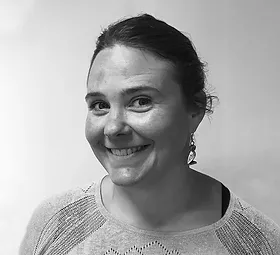
Relationship between technology and science fundamental for Farming Future Hub
The Farming Future Hub (FFH), a test centre that researches growing in controlled environments using different technologies, is working in collaboration with the Advanced Plant Growth Centre (APGC) to deepen its research and develop new methodologies. The partnership utilises the diverse and wide-ranging plant science expertise of the APGC team.
The Hub was set up in 2018 and works with Liberty Produce to develop, test and productise its technology. Kaisa Kantola of Liberty Produce and head of FFH said: “We are looking to better understand how plants grow, the framework and parameters which enhance the growth and yield. We experiment to understand how we might modify and adapt elements for different and better results.
“This allows us to test out novel varieties of plants, as well as trying out different technologies, hydroponic growing systems and varying nutrients. We can also germinate on our site so we can ensure the full biosecurity of our plants. This is hugely beneficial to our customers and collaborators to be able to offer this level of flexibility.”
Geared towards collaboration between technology and a science-based approach, the hub uses the skills of the Liberty Produce team – engineers, technicians, software developers – and the scientists at The James Hutton Institute.
Kaisa Kantola added: “We don’t have the level of plant science expertise within our team that the team at the APGC and Hutton offer, the whole analytical capabilities with such diverse and wide-ranging expertise.
“All four quadrants of the APGC are of interest to our work and we will utilise them all in the activity that we undertake”
Kaisa Kantola
FFH undertakes all stages of the growing process, its works with a novel variety of plants, beyond the traditional salad and micro green crops you traditionally find in vertical farm environments. Working with a wide range of sectors including: growers, retailers, research institutes, technologists, pharmaceuticals and botanicals, as well as government organisations and bodies focused on the environment and military.
Speaking about the need to harness technology in the sector Kaisa said: “Technology will also allow us to better retrofit or set up in areas with limited space, power and water resources, which offers greater interest into different geographical, urban, rural and even war-impacted areas.
“The relationship between technology and science is fundamental – we cannot move this agricultural approach forward if not collaborating. They will allow us to understand the differences and complexities which exist in this type of growing and improve it.”


